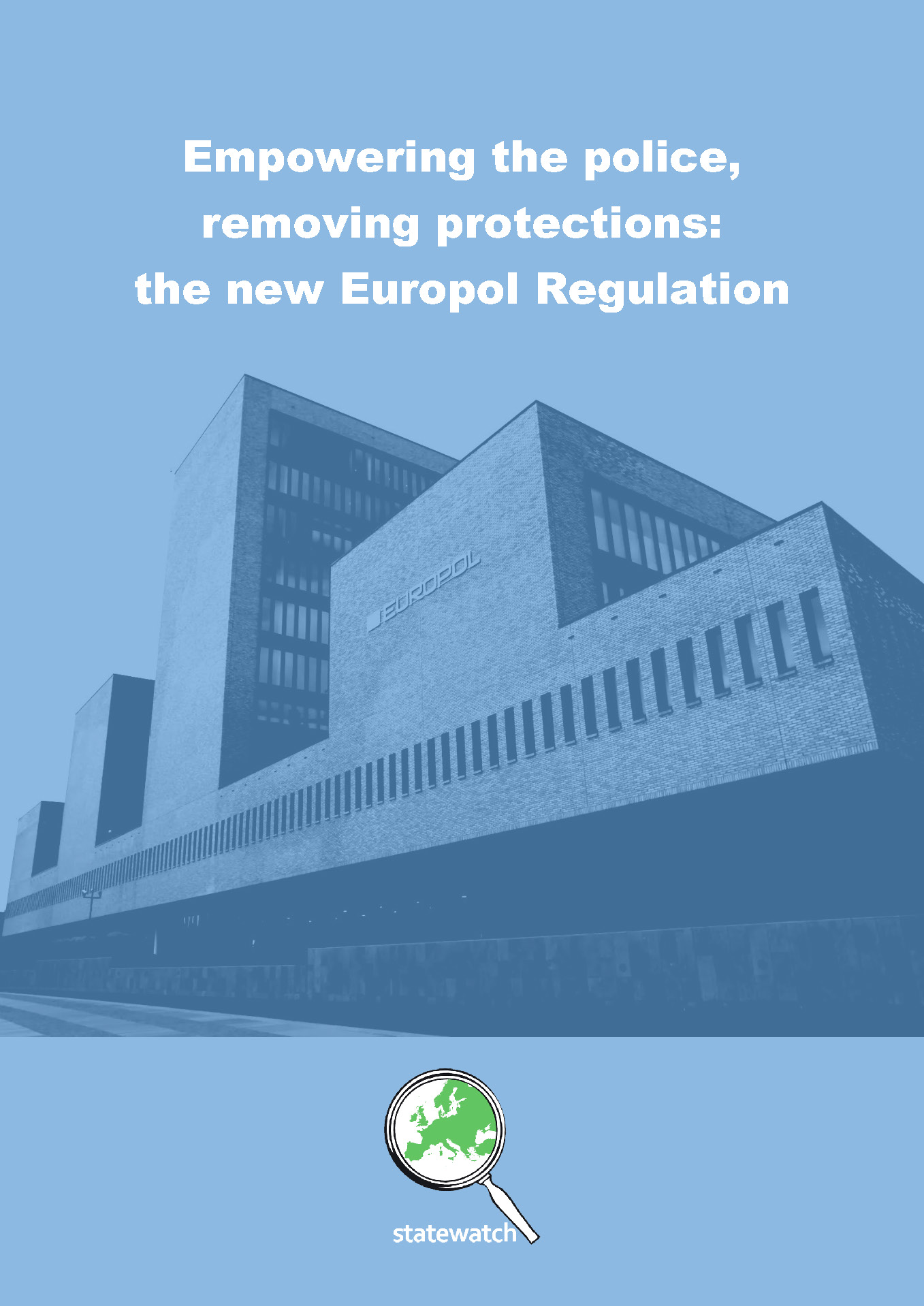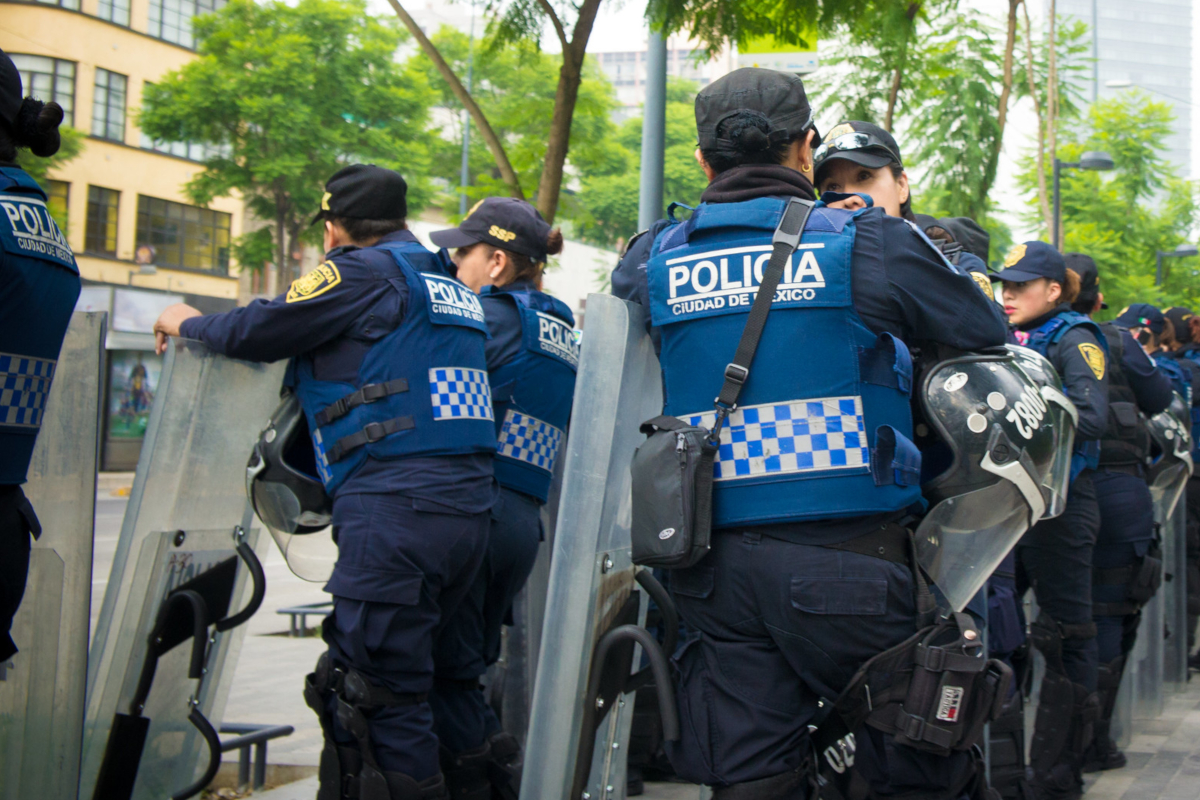Scrutinising European police surveillance of activists: new guide on personal data requests
Topic
Country/Region
18 September 2023
A new guide aims to improve the ability of activists and campaigners to request data held on them by Europol, the EU’s policing agency, and to increase public and political scrutiny of European police forces gathering data on individuals’ political activities.
Support our work: become a Friend of Statewatch from as little as £1/€1 per month.

Image: Alisdare Hickson, CC BY-SA 2.0
Access to data
The guide was created by Statewatch, European Digital Rights, IT-Pol and Access Now and sets out the legal framework, process and requirements for people to make a request to Europol to seek access to any personal information held about them.
“We don’t know how many people are affected by Europol’s data collection, processing and sharing practices,” says the guide, which argues that individuals filing requests and sharing the responses will increase understanding of the extent to which the agency is gathering data on political activists.
Filing subject access requests also requires that the agency “justify the necessity and proportionality of such processing,” helping to make it accountable for the data it holds.
A case in point is that of Frank van der Linde, a Dutch pacifist activist whose data was passed by the Dutch police to the German police and Europol with a “terrorism” label attached to it. After van der Linde sought access to the data held on him by Europol, the agency deleted it, knowing that they should not have been storing it in the first place – though van der Linde is continuing to challenge the decisions of the agency.
The guide also argues that filing subject access requests may help to illuminate how Europol is using its new powers for the bulk processing of personal data, and how data collected by the agency is used as evidence in criminal investigations and proceedings, shedding further light on how the agency works.
However, it comes with a warning for anyone wanting to file a subject access request with Europol. In order to ensure that the agency can identify the individual filing the request, it may seek additional information person to clarify who they are:
“…you must be aware of the potential negative consequences of disclosing this additional information to Europol as it identifies your political activities and could lead the police to further investigate you or link that information with an ongoing investigation.”
A widening net
Police forces have always closely observed protest, activist and campaign groups, and information recently made public suggests that over the last year European police forces have acquired a renewed interest in environmental movements.
“In 2022, there has been a clear uptick in environmental activism noted in Member States,” noted Europol in its recent 2023 Terrorism Situation and Trend (TE-SAT) report.
“The line between environmental activism and environmental extremism is often a blurred one, yet some of environmental activists’ narratives might have the potential to incite violence among extremists,” says the report.
There are multiple terrorist acts defined in EU law. In noting that the line between activism and extremism (itself not defined in law) is “blurred,” the report opens the way to include information on activities that come nowhere near the definition of terrorism – for example, “public order disturbance,” or protests in museums “when activists glued themselves to precious artefacts or damaged themselves with liquids.”
Those forms of protest may well cause inconvenience or disruption, and may even amount to acts of criminal damage – their inclusion in a report supposedly concerned with terrorism, however, will be seen by many as a way to legitimate further police surveillance of environmental movements.
Indeed, the TE-SAT report itself hints at this point, stating: “Some Member States fear the further radicalisation of parts of the environmental activist scene in the EU towards violent extremist and terrorist activity, possibly carried out by clandestine groups.”
In this context, the guide on filing subject access requests with Europol seeks to find a way to hold an increasingly-powerful agency to account, at a time when “surveillance and repression of individuals and organisations have intensified at the European level through the daily, extensive exchange of data among the agency and several European police and migration forces.”
The full guide is available here: How to request access to your personal data stored by Europol: a guide
Our work is only possible with your support.
Become a Friend of Statewatch from as little as £1/€1 per month.
Further reading

Empowering the police, removing protections: the new Europol Regulation
This report examines the new powers granted to EU policing agency Europol by legal amendments approved in June 2022. It finds that while the agency's tasks and powers have been hugely-expanded, in particular with regard to acquiring and processing data, independent data protection oversight of the agency has been substantially reduced.

Europol data deals with violent police forces need “strong data protection safeguards”
Proposed data-sharing deals between Europol and five states in Central and South America needs explicit safeguards if they are to uphold fundamental rights, the European Data Protection Supervisor said at the beginning of May. Police forces in those states have brutal records of violence and torture.

Europol management board in breach of new rules as soon as they came into force
The EU’s police agency, Europol, has landed itself in trouble again. Having been formally admonished by the European Data Protection Supervisor (EDPS) late last year for its illegal processing of vast quantities of personal data, and in September for refusing an access request to the personal data of a political activist and trying to cover it up by deleting his data from the system, Statewatch can now reveal that the agency’s management board was in breach of the new rules governing the agency as soon as they came into force in June.
Spotted an error? If you've spotted a problem with this page, just click once to let us know.

